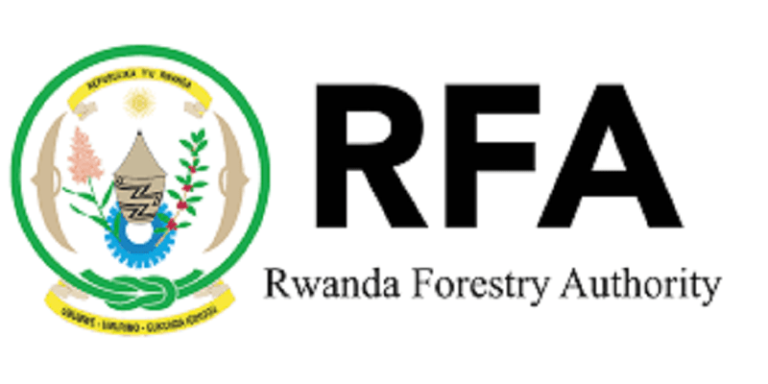Exploring 4 Vital Job Positions of Agroforestry Field Officer at Rwanda Forestry Authority (RFA)
In recent years, the significance of agroforestry in sustainable land management has gained widespread recognition globally. Rwanda, a country known for its commitment to environmental conservation, is actively promoting agroforestry practices. To spearhead these efforts, the Rwanda Forestry Authority (RFA) is seeking qualified professionals for four crucial positions as Agroforestry Field Officers. This article delves into the intricacies of these roles, highlighting their responsibilities, qualifications, and the importance of agroforestry in Rwanda’s sustainable development.
1. Agroforestry Extension Officer:
– Responsibilities: As an Agroforestry Extension Officer, the primary responsibility is to disseminate knowledge and techniques related to agroforestry practices to local communities and farmers. This involves conducting training sessions, workshops, and field demonstrations to promote the adoption of sustainable land management practices.
– Qualifications: A bachelor’s degree in forestry, agriculture, environmental science, or a related field is required. Strong communication and interpersonal skills are essential, along with the ability to engage with diverse stakeholders effectively.
– Importance: This role plays a crucial part in bridging the gap between scientific research and practical implementation. By empowering local communities with the necessary knowledge and skills, Agroforestry Extension Officers contribute to the widespread adoption of sustainable agricultural practices, leading to improved land productivity and environmental conservation.
2. Agroforestry Research Officer:
– Responsibilities: The Agroforestry Research Officer is responsible for designing and conducting research projects focused on agroforestry practices. This includes assessing the performance of different agroforestry systems, evaluating their environmental impact, and identifying best practices for implementation.
– Qualifications: A master’s degree or higher in forestry, agronomy, ecology, or a related field is required, along with significant research experience. Proficiency in data analysis and research methodologies is essential, along with strong analytical and problem-solving skills.
– Importance: Research is the cornerstone of evidence-based decision-making in agroforestry. By generating valuable insights and practical recommendations, Agroforestry Research Officers contribute to the continuous improvement and adaptation of agroforestry practices, ensuring their long-term sustainability and effectiveness.
3. Agroforestry Project Manager:
– Responsibilities: The Agroforestry Project Manager oversees the planning, implementation, and monitoring of agroforestry projects initiated by the Rwanda Forestry Authority. This involves coordinating with various stakeholders, managing budgets and resources, and ensuring that project objectives are met within the specified timeframe.
– Qualifications: A bachelor’s or master’s degree in project management, environmental management, forestry, or a related field is required, along with relevant experience in project coordination and management. Strong leadership, organizational, and decision-making skills are essential for this role.
– Importance: Effective project management is essential for the successful execution of agroforestry initiatives. Agroforestry Project Managers play a pivotal role in ensuring that projects are implemented efficiently, resources are utilized effectively, and desired outcomes are achieved, thereby contributing to the overall sustainability and impact of agroforestry interventions.
4. Agroforestry Policy Analyst:
– Responsibilities: The Agroforestry Policy Analyst is responsible for analyzing existing policies related to agroforestry, identifying gaps and opportunities for improvement, and providing recommendations to policymakers. This involves conducting policy research, engaging with relevant stakeholders, and advocating for policy reforms to support agroforestry development.
– Qualifications: A master’s degree or higher in forestry policy, environmental policy, public administration, or a related field is required, along with expertise in policy analysis and advocacy. Strong communication, research, and negotiation skills are essential for this role.
– Importance: Policy frameworks play a critical role in shaping the environment for agroforestry development. Agroforestry Policy Analysts contribute to the formulation of conducive policies that promote investment, innovation, and sustainability in the agroforestry sector, thereby facilitating its growth and impact on rural livelihoods and environmental conservation.
Minimum qualifications
- Bachelor’s Degree in Agroforestry: 3 Years of relevant experience
- Bachelor’s Degree in Environmental Management: 3 Years of relevant experience
- Bachelor’s Degree in Forestry, 3 Years of relevant experience
- Bachelor’s Degree in Agriculture: 3 Years of relevant experience
- Bachelor’s Degree in Biodiversity Conservation: 3 Years of relevant experience
- Bachelor’s degree in environmental science: 3 Years of relevant experience
Required competencies and key technical skills;
- Integrity
- Strong critical thinking skills and excellent problem solving skills.
- Professionalism
- Extensive Knowledge in Forestry and Natural Resources
- Skills in Agroforestry
In conclusion, the four job positions of Agroforestry Field Officer at the Rwanda Forestry Authority offer exciting opportunities for individuals passionate about sustainable land management and environmental conservation. Whether it’s extending knowledge to local communities, conducting cutting-edge research, managing projects, or shaping policies, each role plays a vital part in advancing the cause of agroforestry in Rwanda. By joining the RFA team, professionals have the chance to make a meaningful impact on the environment, livelihoods, and future generations. With the deadline for applications approaching, aspiring candidates are encouraged to seize this opportunity to contribute to Rwanda’s journey towards a greener and more sustainable future.


